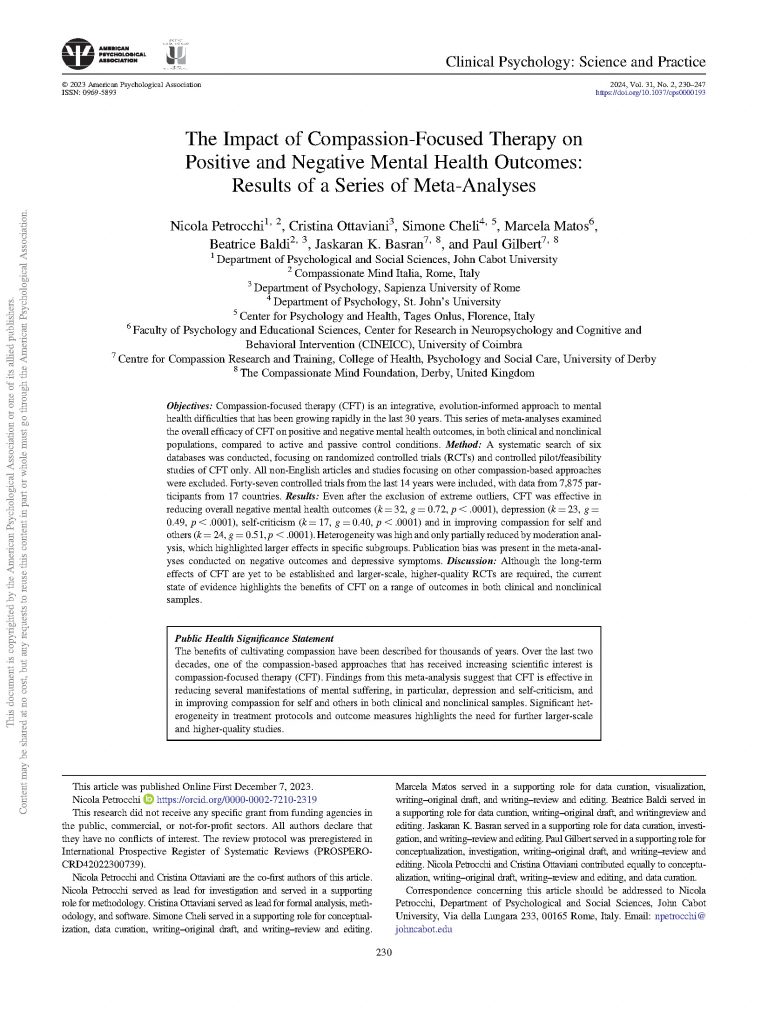
It is wonderful to see that CFT has been getting the research attention that it very well deserves. Well done to Nicola and the research team for putting together this series of meta-analyses.
The full reference is as follows (and the Abstract below):
Petrocchi, N., Ottaviani, C., Cheli, S., Matos, M., Baldi, B., Basran, J. K., & Gilbert, P. (2024). The impact of compassion-focused therapy on positive and negative mental health outcomes: Results of a series of meta-analyses. Clinical Psychology: Science and Practice, 31(2), 230–247. https://doi.org/10.1037/cps0000193
Abstract
Objectives: Compassion-focused therapy (CFT) is an integrative, evolution-informed approach to mental health difficulties that has been growing rapidly in the last 30 years. This series of meta-analyses examined the overall efficacy of CFT on positive and negative mental health outcomes, in both clinical and nonclinical populations, compared to active and passive control conditions.
Method: A systematic search of six databases was conducted, focusing on randomized controlled trials (RCTs) and controlled pilot/feasibility studies of CFT only. All non-English articles and studies focusing on other compassion-based approaches were excluded. Forty-seven controlled trials from the last 14 years were included, with data from 7,875 participants from 17 countries.
Results: Even after the exclusion of extreme outliers, CFT was effective in reducing overall negative mental health outcomes (k = 32, g = 0.72, p < .0001), depression (k = 23, g = 0.49, p < .0001), self-criticism (k = 17, g = 0.40, p < .0001) and in improving compassion for self and others (k = 24, g = 0.51, p < .0001). Heterogeneity was high and only partially reduced by moderation analysis, which highlighted larger effects in specific subgroups. Publication bias was present in the meta-analyses conducted on negative outcomes and depressive symptoms.
Discussion: Although the long-term effects of CFT are yet to be established and larger-scale, higher-quality RCTs are required, the current state of evidence highlights the benefits of CFT on a range of outcomes in both clinical and nonclinical samples.

You must be logged in to post a comment.